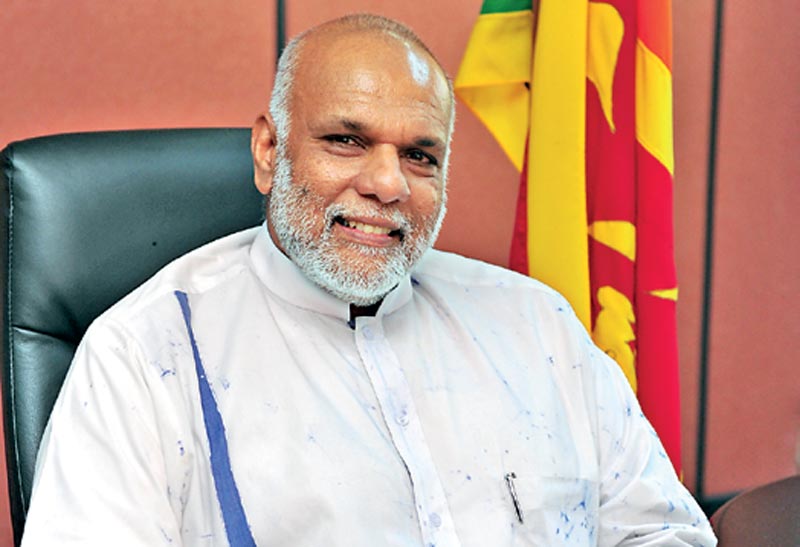Thursday Feb 19, 2026
Thursday Feb 19, 2026
Saturday, 18 September 2021 02:37 - - {{hitsCtrl.values.hits}}

Chairman Suresh de Mel
By Charumini de Silva
The Export Development Board (EDB) Chairman Suresh de Mel recently said the current unprecedented time is an opportunity to formalise the small- and medium-scale entrepreneurs (SMEs), noting that half or more are engaged in the informal sector.
“SMEs play a major role in most economies, particularly in developing countries like ours. However, the tricky part in our country is that most of them are engaged in the informal sector. So, the time is right for us to push to bring them to the mainstream,” he said at a webinar.
The event, titled ‘SMEs looking to export goods and services to Great Britain’, was jointly organised by the Council for Business with Britain and Commercial Bank Plc.
He said that most of the SME exporters could not obtain the Government provided financial moratoriums, low interest rates, and extended facilities, as they were not part of the formal sector and there was no data to even track them.
The EDB Chief was alarmed that the unprecedented increase in gold pawning could be the SMEs that generally are a vulnerable group.
SMEs make up to 42% of the GDP, making 75% of the total number of enterprises; and 45% of the workforce is employed in the sector. They also make up 20% of the exported goods and 30% of the production value.
Emphasising that there are many practical issues in getting the informal sector absorbed into the mainstream, de Mel pointed out that this would perhaps need a lot of engagement with them to create awareness.
“This means we need to create more awareness on the opportunities and benefits for them in being recognised as a formal business unit,” he said.
The EDB Chief said banks, too, can play a pivotal role in attracting the informal SMEs to the mainstream by conducting awareness workshops through their regional networks.
Commercial Bank Chief Manager - Exports Department Lawrin Somanader said the bank disbursed a total of Rs. 105 billion to facilitate SMEs.
“During the first two waves of COVID-19 in the country, we extended the moratorium to over 15,000 SMEs and over 5,000 SMEs benefited from the concessions we provided separately,” he added.
Somanader said the key focus of the bank was to provide financial moratorium, where they extended concessionary rates, rescheduled loans, and restructured loans to meet their cash flow.
“We also supported a lot of customers that are into exporters to minimise their demurrage. The bank will remain committed to reviving and sustaining their businesses,” he said.